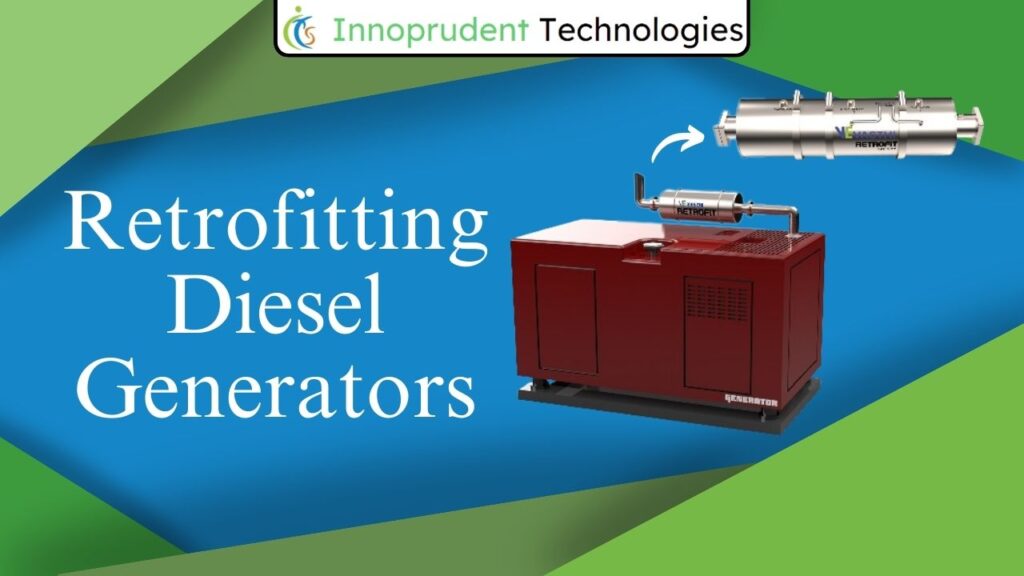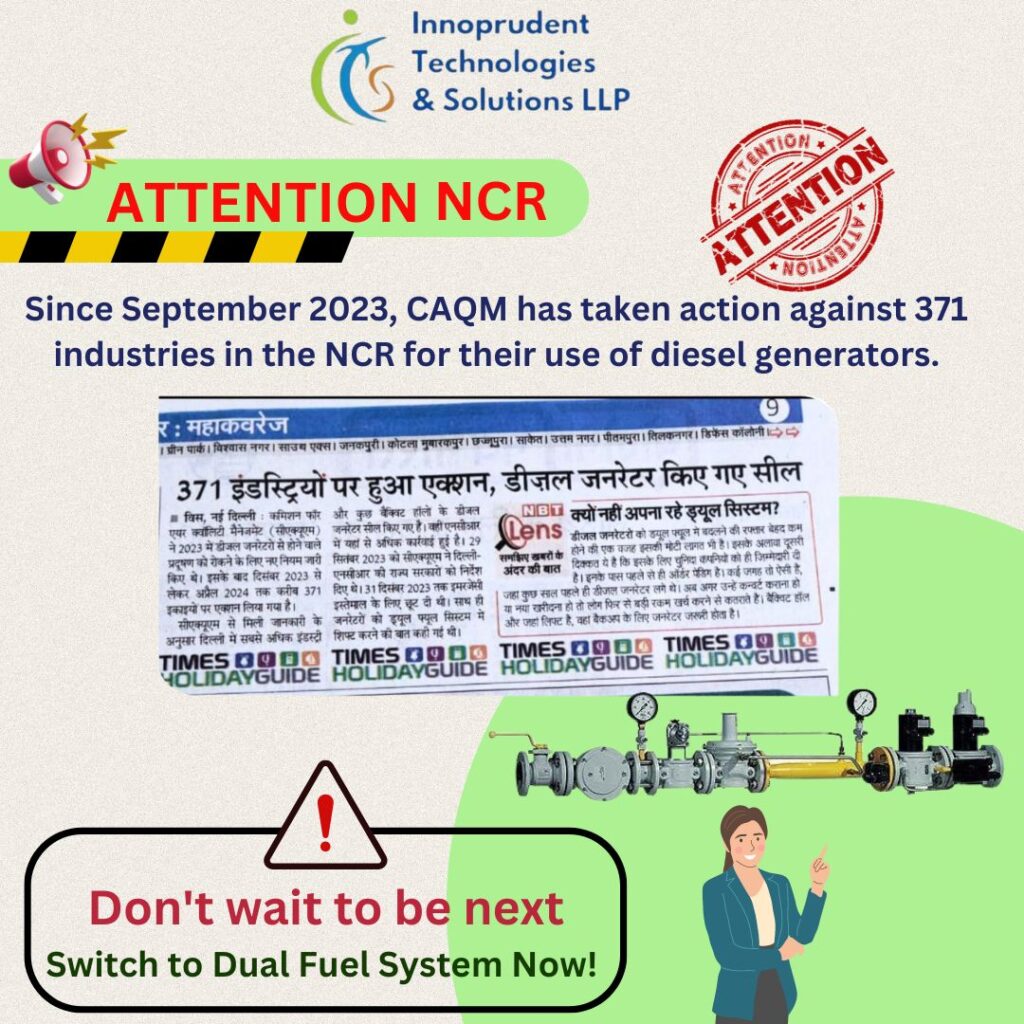Imagine a world without electricity, where your lights go out, your appliances stop working, and your life grinds to a halt during a power outage. In such moments, diesel generators come to the rescue, providing the energy needed to keep things running smoothly.
However, these trusty powerhouses can become even more reliable and environmentally friendly with a little makeover. In this article, we’ll move through the process of retrofitting your diesel generator for improved efficiency. It’s all about making your generator not just a lifesaver, but a planet-saver too, in a way that’s easy to understand and implement.
Assess Your Current Generator
Before you move for a retrofitting project, it’s crucial to understand the state of your existing diesel generator. Take a closer look at the generator’s age, make, model, and current performance.
You should also consider its maintenance history and any known issues. By assessing your generator, you can identify specific areas that require improvement and determine the overall condition of the machine.
Conduct an Energy Audit
To enhance the efficiency of your diesel generator, you need to conduct an energy audit to evaluate how and where energy is being consumed. This audit helps you pinpoint areas where energy is wasted, such as inefficient systems or components. You can hire Innoprudent technologies to assess the generator’s overall performance and efficiency.
Opt for High-Efficiency Components
One of the most effective ways to improve the efficiency of your diesel generator is to replace or upgrade its components with high-efficiency ones. Here are some key components to consider:
a. Fuel Injectors: Modern, high-efficiency fuel injectors can provide better atomization of diesel fuel, ensuring more complete combustion and reduced fuel consumption.
b. Air Filters: Upgrading to high-quality air filters can improve air intake and reduce engine stress, leading to improved efficiency.
c. Exhaust Systems: Installing a more efficient exhaust system can help the generator expel exhaust gasses more effectively, reducing back pressure and enhancing performance.
d. Cooling Systems: Consider upgrading the cooling system to maintain optimal operating temperatures, which can significantly impact generator efficiency.
Electronic Control Systems
Another essential aspect of retrofitting your diesel generator is upgrading the electronic control systems. Newer control systems can optimize fuel injection timing and adjust the engine’s performance based on the load, resulting in significant fuel savings and better efficiency.
Regular Maintenance
Proper and regular maintenance is vital for any diesel generator. Regularly changing the oil and filters, inspecting the electrical connections, and cleaning the air intake system can go a long way in maintaining the generator’s efficiency. Ignoring maintenance can lead to reduced performance and increased fuel consumption.
Load Management
Efficient load management is a key factor in improving the efficiency of your diesel generator. By optimizing the load on the generator to match its capacity, you can prevent overloading or underloading, which can reduce efficiency.
Implement load shedding or load-sharing strategies to ensure that your generator operates at its peak performance levels.
Fuel Quality
The quality of the diesel fuel you use can also affect the efficiency of your generator. Make sure to use clean, high-quality diesel fuel with the appropriate specifications for your generator. Poor-quality fuel can lead to incomplete combustion and increased fuel consumption.
Invest in Cogeneration
Cogeneration, also known as combined heat and power (CHP), is a strategy that can significantly improve the efficiency of your diesel generator.
With cogeneration, the waste heat produced by the generator is captured and used for heating or cooling purposes, making the overall system more efficient and cost-effective.
Evaluate Emission Control
Reducing emissions is not only good for the environment but can also improve the overall efficiency of your diesel generator.
Consider retrofitting your generator with emission control systems, such as selective catalytic reduction (SCR) or diesel particulate filters (DPF), to reduce harmful emissions and improve performance.
Training and Operator Knowledge
Ensure that the operators and maintenance personnel are adequately trained to handle the retrofitting changes and maintain the generator effectively. Operator knowledge plays a critical role in optimizing the generator’s performance and efficiency.
Evaluate Return on Investment
While retrofitting your diesel generator for improved efficiency is essential, it’s also crucial to evaluate the return on investment (ROI).
Calculate the potential savings in fuel and maintenance costs against the upfront retrofitting expenses to determine whether the investment makes financial sense.
Consider Renewable Energy Integration
If possible, consider integrating renewable energy sources, such as solar panels or wind turbines, with your diesel generator. This hybrid system can reduce the generator’s runtime and reliance on diesel fuel, improving overall efficiency.
Test and Monitor
After completing the retrofitting process, it’s essential to conduct thorough testing to ensure that the improvements are delivering the expected results. Monitor the generator’s performance over time and make necessary adjustments to maintain efficiency.
Compliance with Regulations
Before and after retrofitting, ensure that your diesel generator complies with local and national regulations regarding emissions, noise, and safety. Non-compliance can lead to fines and legal issues, so it’s crucial to stay within the legal framework.
Some Related Posts
Wrapping Up
Retrofitting your diesel generator for improved efficiency is a smart investment that can lead to significant fuel savings, reduced emissions, and lower operational costs. By following these steps, you can enhance the performance of your generator while also contributing to a greener and more sustainable future.
Regular maintenance, high-efficiency components, electronic control systems, load management, and other strategies can collectively make your diesel generator a more reliable and efficient power source. Don’t forget to monitor the results and stay updated with the imprudent to ensure your generator operates at its best.
Frequently Asked Questions(FAQs)
What is a diesel generator retrofit, and why is it important?
A diesel generator retrofit involves upgrading and modifying an existing generator to improve its performance, efficiency, and environmental impact. It’s important to ensure that your generator remains reliable, cost-effective, and eco-friendly.
How can I assess the current efficiency of my diesel generator?
You can assess your generator’s efficiency by analyzing its fuel consumption, emissions, and overall performance. An energy audit or consultation with a generator specialist can provide valuable insights.
What components of the diesel generator can be upgraded for better efficiency?
Key components that can be upgraded include fuel injectors, air filters, exhaust systems, cooling systems, and electronic control systems. Upgrading these parts can lead to improved efficiency.
What role does regular maintenance play in diesel generator efficiency?
Regular maintenance, such as changing oil and filters, cleaning air intakes, and inspecting electrical connections, is essential for preserving your generator’s efficiency and preventing costly breakdowns.
How does load management affect the efficiency of a diesel generator?
Efficient load management ensures that the generator operates within its optimal capacity, preventing both overloading and underloading, which can reduce efficiency. Load management strategies are crucial for peak performance.
What are the benefits of using high-quality fuel for a diesel generator?
High-quality diesel fuel with the right specifications promotes complete combustion and reduces fuel consumption, leading to improved efficiency and reduced emissions.



